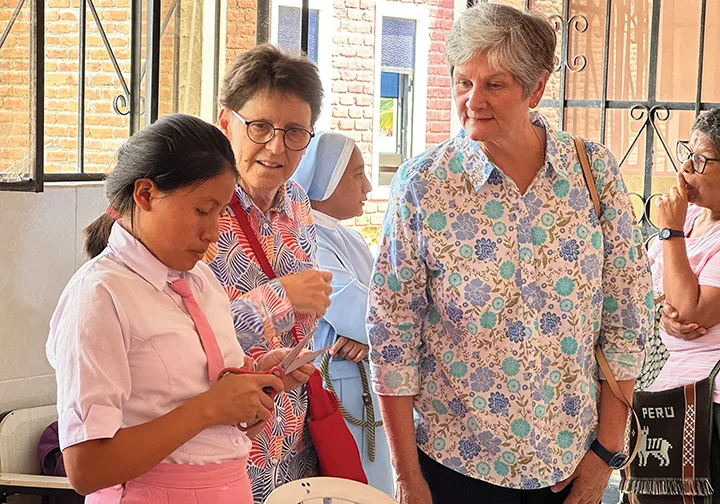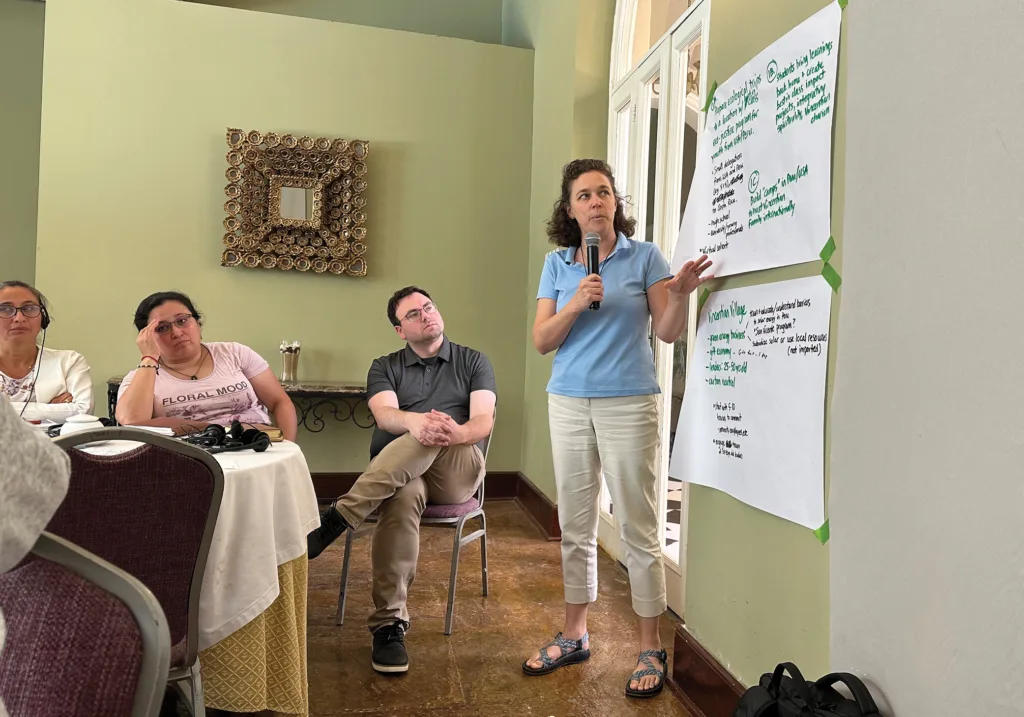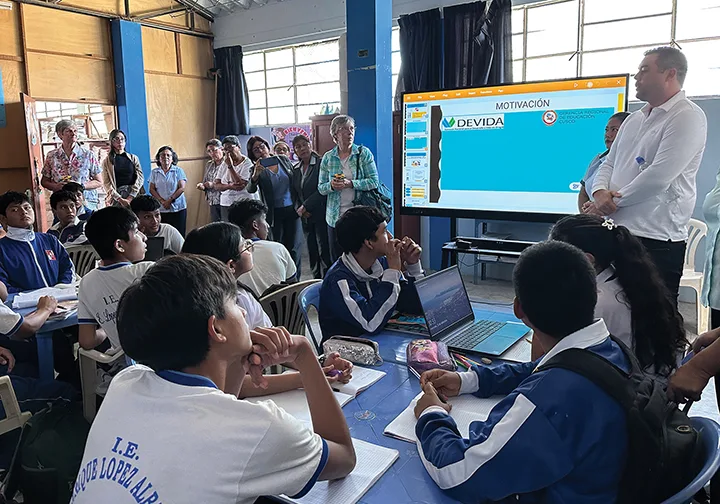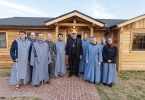
by Therese Horvat
Special to The Leaven
Since November 1858 when they first arrived in Kansas from Nashville, Tennessee, the Sisters of Charity of Leavenworth (SCLs) have exemplified a pioneer spirit.
Today, 165 years later, that spirit remains vibrant as the religious community explores ways to strengthen collaboration with its sponsored ministries through the lens of the teachings of Pope Francis.
“We are responding to the call of Pope Francis who emphasizes integral ecology — the interconnectedness of all creation, all people, all systems and all interactions,” explained Sister Eileen Haynes, SCL community director. “In ‘Laudato Si’’ and related documents, the pope urges us to recognize that the cry of the poor and the cry of the earth are very connected.”

With its three sponsored institutional ministries, the SCL community has begun a process of intentional collaboration to address critical needs of the times and their interrelated and systemic causes.
The sponsored ministries include Cristo Rey High School, Kansas City, Missouri; San Vicente de Paul Pastoral Center, Piura, Peru; and the University of Saint Mary, Leavenworth and Overland Park. The process is in its first year with its focus on building and deepening relationships among a core group of leaders and staff.
Trip focuses on SCL ministries in Peru
Part of the process is visiting and getting to know each sponsored ministry. From Sept. 10-14, a group including 13 SCLs and laypersons traveled to Piura to better understand the work of the Hermanas de la Caridad (native Peruvian Sisters of Charity). John Shively, lead coordinator of the SCL Office of Justice, Peace, and Integrity of Creation, said that he gained a deeper understanding of what the realities of ministry in Peru look like.
“The Hermanas (Sisters) are making a difference in Piura as they live out their generosity without having the material wealth we have in this country,” he said.
Claudia Meyer, Cristo Rey president and CEO, appreciates the opportunity to be immersed in and to learn from each of the ministries. In even her brief time in Peru, she saw that the pastoral center is having an amazing impact.
“The Hermanas offer so many services that are so affordable and that serve so many people,” she said. “It’s one thing to hear about the St. Vincent Pastoral Center and another to witness its impact.”

The passion of the people who work alongside the Hermanas impressed Margaret Haik, director of SCL communications.
“The staff at San Vicente Center were passionate when speaking about their work, whether it was speech, physical or psychological therapy,” she said. “All had strong ties to the Vincentian charism to accompany and help the poor by using their own gifts and talents.”
While not an SCL-sponsored ministry, a high school in Piura where Hermana Esther Vilela Gutiérrez, director of Latin American Missions, teaches was a favorite stop of the U.S. visitors and an authentic Peruvian cultural experience. A band welcomed the guests; several students performed dances.
In this school of 1,170 students, observed Rebecca Metz, coordinator of the SCL Office of Justice, Peace, and Integration of Creation, the youth clearly benefited from all the time and effort teachers and staff had put in to help form them. Haik added that the students were excited to share what they were learning.
Hermana Laura Rumiche Morales, director of St. Vincent Pastoral Center, expressed gratitude to God for this time of grace with the SCL leaders and staff, representatives of the sponsored ministries and the six other Peruvian HCLs. During the recent visit, she experienced the energy of interconnectivity and the presence of the Spirit.
Involvement of persons served and serving
Early in 2024, the core group plans to visit Cristo Rey and the University of Saint Mary. Over time, the circle of involvement will continue to expand.
Systemic social and environmental change is the long-term goal. Key to this is ensuring that impoverished and marginalized youth and their families participate fully and with equality in improving lives and neighborhoods.
Each of the four entities — the SCL community and the three sponsored ministries — will retain its own mission as they work individually and collectively to sustain the SCL and Vincentian mission into the future.
Shively acknowledged the SCL commitment to empower laypersons to have input in this process and to be formed in the mission. This will bring several different voices to the table. It will foster shared ownership to embody and live the spirit of integral ecology among the SCL community and the sponsored ministries, as well as the people they serve and with whom they serve.
“God speaks for unity and connectivity,” Sister Eileen concluded. “Our call is to use our resources and the energy we each have for the good of the whole — that whole encompassing the students and patients we serve, those who are marginalized, our co-workers and partners, the broader community, our environment and all of creation.”
Meyer points to the collaborative potential the SCLs and the sponsored ministries have together to model the interconnectedness inherent to integral ecology.
“This transformative experience could be powerful enough to change the world,” she said.






